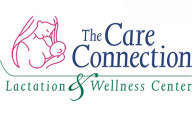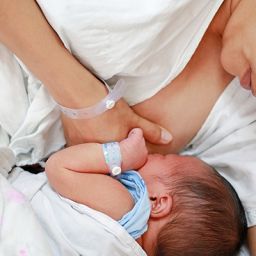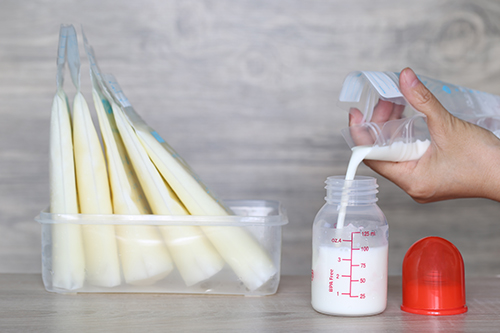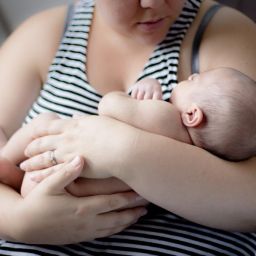During pregnancy, you were given a list of food and drinks to avoid or limit, but what about when breastfeeding? When it comes to breastfeeding, it’s important for you not to forget about your diet. The following are some helpful guidelines.
Vitamins
The first thing you should do is continue taking your prenatal vitamins. This decreases the risk of vitamin deficiencies. Both you and your baby will need additional vitamin D. Breast milk usually does not contain enough vitamin D to meet an infant’s needs, so high dose maternal supplementation can increase vitamin D levels in your breast milk. Check with your doctor for appropriate dosing.
Fluid Intake
You need to be aware of your fluid intake when breastfeeding. Think about how many fluids your body loses in a day in the form of breast milk. A good rule of thumb is to drink to thirst. Feeling thirsty is your body’s way of telling you to take in more fluids. Fill up a water bottle and keep it with you throughout the day!
Increased Calories
This is the time to not feel guilty about that extra helping! A normal healthy adult needs to consume approximately 2000 calories a day. A breastfeeding mother needs to consume 2500 calories a day. That is an extra 500 calories a day needed for your body to use energy to make breast milk.
Types of Food
Most moms can consume any food without noticing a problem in their baby. Some common foods that can cause a problem in babies such as colic, flatulence, diarrhea, rashes, and vomiting can include chocolate, green leafy veggies, dairy, caffeine, and spicy foods. Monitor your baby and eliminate food from your diet as needed. Consult your pediatrician and/or lactation consultant if you feel that your baby has adverse reactions to the food you are eating.
After having a baby, it’s easy to get busy and forget to eat or just run out of time! Make your diet a priority so you can provide breast milk for your baby and keep yourself healthy.











